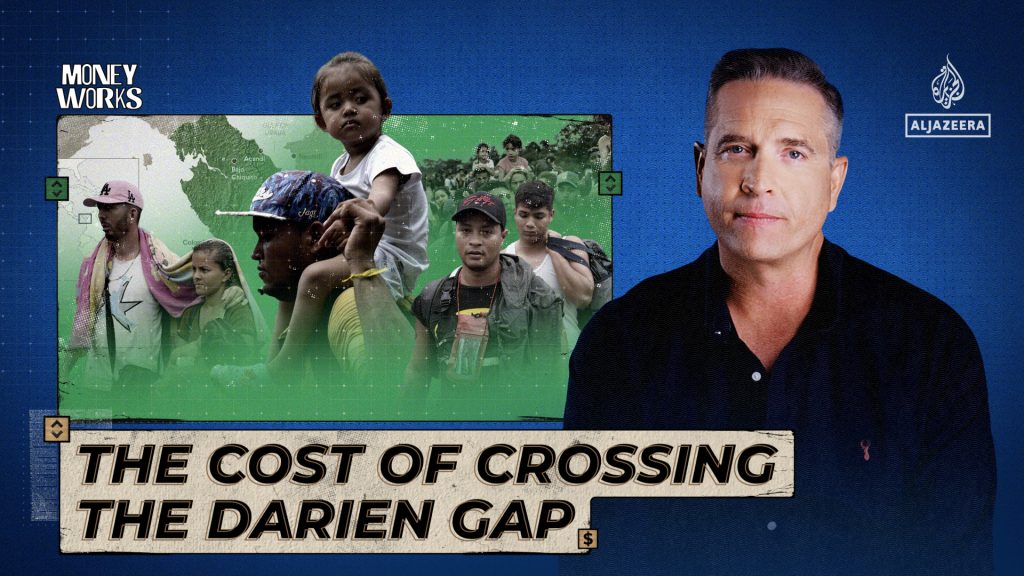The Darien Gap is a treacherous and deadly stretch of land located between Panama and Colombia, where hundreds of thousands of migrants risk their lives each year in hopes of reaching the United States. This unforgiving terrain is filled with dense forests, raging rivers, and dangerous wildlife, making it one of the most difficult and perilous crossings in the world. The journey through the Darien Gap can be fatal for many migrants, as they face the threat of violence, exposure to harsh weather conditions, and lack of food and water. Despite the dangers, migrants continue to attempt this journey due to the lack of alternative routes and the hope of a better life in the United States.
One of the main challenges faced by migrants attempting to cross the Darien Gap is the presence of ruthless gangs of people smugglers who exploit their desperation by demanding exorbitant prices for their services. These smugglers take advantage of the vulnerable situation of migrants and charge them high fees for guiding them through the treacherous terrain. This puts migrants at risk of being exploited, trafficked, or abandoned by the smugglers, leaving them stranded in the dangerous environment of the Darien Gap. The high demand for their services allows these criminals to operate with impunity, preying on the hopes and dreams of vulnerable migrants seeking a better life.
The extortionate fees charged by people smugglers for crossing the Darien Gap can vary depending on the individual circumstances of the migrants and the level of risk involved in the journey. Some migrants are forced to sell all their belongings or borrow money from friends and family in order to afford the cost of the journey, while others may be forced into debt bondage or become victims of human trafficking in order to pay the smugglers. The exploitative practices of these criminal networks further exacerbate the vulnerabilities of migrants, pushing them deeper into poverty and exploitation.
In addition to the financial burden of paying for the services of people smugglers, migrants attempting to cross the Darien Gap also face the risk of violence and abuse at the hands of these criminal networks. Smugglers may use threats, intimidation, or physical violence to coerce migrants into compliance, putting their lives at even greater risk. In some cases, migrants have been subjected to sexual assault, forced labor, or other forms of exploitation by the smugglers, leading to further trauma and suffering for those seeking a better future in the United States. The lack of protection and accountability for these criminal activities only serves to perpetuate the cycle of violence and exploitation in the Darien Gap.
The dangerous journey through the Darien Gap has become a lucrative business for criminal networks, who profit from the vulnerabilities and desperation of migrants seeking a better life. The absence of effective border controls and law enforcement in this remote and inhospitable region allows these criminal networks to operate with impunity, leaving migrants at their mercy. The combination of extreme poverty, lack of opportunities, and political instability in countries such as Venezuela and Nicaragua has fueled the demand for the services of people smugglers, who promise to help migrants reach the United States in exchange for a high price. As long as the root causes of migration remain unaddressed, the cycle of exploitation and abuse in the Darien Gap is likely to continue, leaving vulnerable migrants at the mercy of criminal networks who profit from their suffering.
In order to address the humanitarian crisis in the Darien Gap and protect the rights and safety of migrants, it is crucial to strengthen international cooperation, improve border controls, and provide support to countries in the region facing economic and political challenges. By addressing the root causes of migration, such as poverty, violence, and lack of opportunities, it is possible to reduce the demand for the services of people smugglers and provide safer and legal pathways for migrants to reach their destination. Additionally, efforts must be made to hold criminal networks accountable for their actions and provide support and assistance to migrants who have been exploited or abused during their journey through the Darien Gap. Only through a coordinated and comprehensive approach can we hope to address the challenges faced by migrants in this dangerous and unforgiving region.















